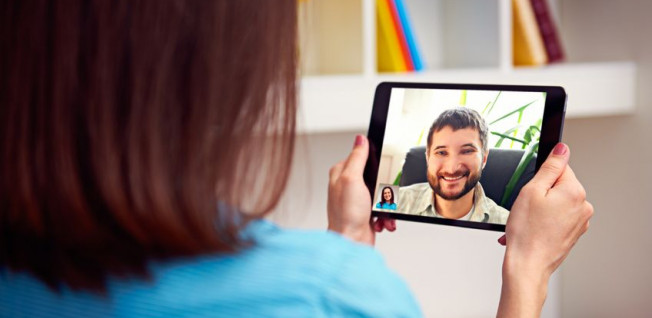Im Bus, der Bahn, auf der Couch, bei der Arbeit und auch auf der Toilette, das Handy ist immer dabei und griffbereit. Zu heutigen Zeiten versuchen wir stets erreichbar zu sein und daddeln den ganzen Tag am mobilen Endgerät herum. Dabei kann man bei übermäßiger Handynutzung nicht gesund leben und das mobile Gerät kann sogar krank machen. Ein erster Schritt zu einer geringeren Nutzung ist, das Telefon ab einer bestimmten Uhrzeit nicht mehr zu nutzen.
Wie gefährlich ist übermäßige Handynutzung?
Smartphones sind aus unserem Leben und besonders aus dem Alltag nicht mehr wegzudenken. Wir nutzen sie, um zu arbeiten, zum Lesen, Notizen zu schreiben und vor allem, um im ständigen Kontakt mit Familie, Freunden und Bekannten zu sein. Oder aber auch, um uns bei einer längeren Sitzung auf der Toilette die Zeit zu vertreiben – was man eigentlich nicht tun sollte. Dieses andauernde erreichbar sein, kann sich jedoch negativ auf unsere Psyche und unseren Körper auswirken.
Aber nicht nur psychische Erkrankungen können auftreten. Auch der Körper kann durch übermäßige Nutzung des Smartphones in Mitleidenschaft geraten. Durch das ständige Herabschauen auf das mobile Endgerät wird die Muskulatur im Nacken nur einseitig belastet und es führt zu Verkrampfungen – der sogenannte Handynacken entsteht. Weitere psychische und körperliche Auswirkungen könnten sein:
- Abhängigkeit bis hin zu Sucht
- Angststörungen
- mangelnde Konzentrationsfähigkeit
- Stress und Überforderung
- kognitive Fähigkeiten nehmen ab
- in Extremfällen: Depressionen
- Rundrücken
- Smartphone-Schulter
- Handydaumen
- trockene Augen durch Bildschirmzeit
Ab welcher Uhrzeit sollte man kein Handy mehr benutzen?
Wer tagsüber nicht auf sein Smartphone verzichten kann oder will, sollte zumindest am Abend und in der Nacht Abstand von dem Apparat nehmen. Denn durch das Handy können in vielen Fällen Schlafstörungen ausgelöst werden. Das liegt zum einen an der ständigen Erreichbarkeit und der Angst, etwas zu verpassen, aber auch am blauen Licht, welches vom Display ausgestrahlt wird. Warum ist das so?
Licht wirkt auf Menschen wie ein Muntermacher, da es die Produktion des Schlafhormons Melatonin unterdrückt. Setzen sich Menschen künstlichen Lichtquellen aus, hält sie das also länger wach. Forschende der Harvard University stellten fest, dass dies in einem besonderen Maß für blaues Licht gilt. Daher sollte man am besten Smartphone-feie Zeiten einplanen und, wenn möglich, das Handy ab 22 Uhr bis nach dem Aufstehen am Morgen nicht mehr zu benutzen. Das sollte pro Person und Alter auch ungefähr mit der Dauer einhergehen, die man nachts schlafen sollte.
Meine News
Wie lange vor dem Schlafengehen sollte man kein Handy mehr benutzen?
Diese Empfehlungen beziehen sich nicht nur auf Smartphones, sondern auf sämtliche Endgeräte, die mit einem LED- oder OLED-Display ausgestattet sind. Darunter fallen neben Handys beispielsweise noch Tablets, Fernseher und manche E-Book-Reader. Wer häufig unter Schlafproblemen leidet, sollte besonders am Abend auf diese Lichtquellen verzichten, auch wenn diese Geräte laut Herstellern mit einem Blaufilter ausgestattet sind.
Es kann helfen, etwa zwei bis drei Stunden vor dem Schlafen keine elektronischen Geräte mehr zu benutzen, um einer möglichen Überreizung entgegenzuwirken. Wer sich am Abend beschäftigen möchte, kann beispielsweise ruhige Aktivitäten betreiben, wie das Lesen eines Buches oder puzzeln. Leichtes Dehnen vor dem Zubettgehen kann auch beim Einschlafen helfen. Wer Probleme beim Einschlafen hat, sollte vielleicht den Trick eines US-Mediziners ausprobieren.
Für viele geht direkt am morgen der erste Griff an das mobile Endgerät. Sei es, um den Wecker abzustellen, oder den Tag mit einer gemütlichen Runde Social Media zu starten, wiederum andere führen sich darüber die neuesten News des Tages zu Gemüte. Es gibt die diversesten Gründe, warum man morgens, nach dem Aufwachen, zum Smartphone greift. Dabei sollte man genau dies nicht tun. Laut der US-amerikanischen Neurowissenschaftlerin Emily McDonald sollte man morgens auf keinen Fall direkt zum Mobiltelefon greifen. Denn die Gehirnwellen bewegen sich nach dem Aufwachen von einem Dämmerzustand in einen Wachzustand und benötigen dafür ein wenig Zeit. Wenn man direkt zum Handy greift, werden einige Übergänge übersprungen, und man ist tagsüber gestresster und abgelenkter. (rah)














